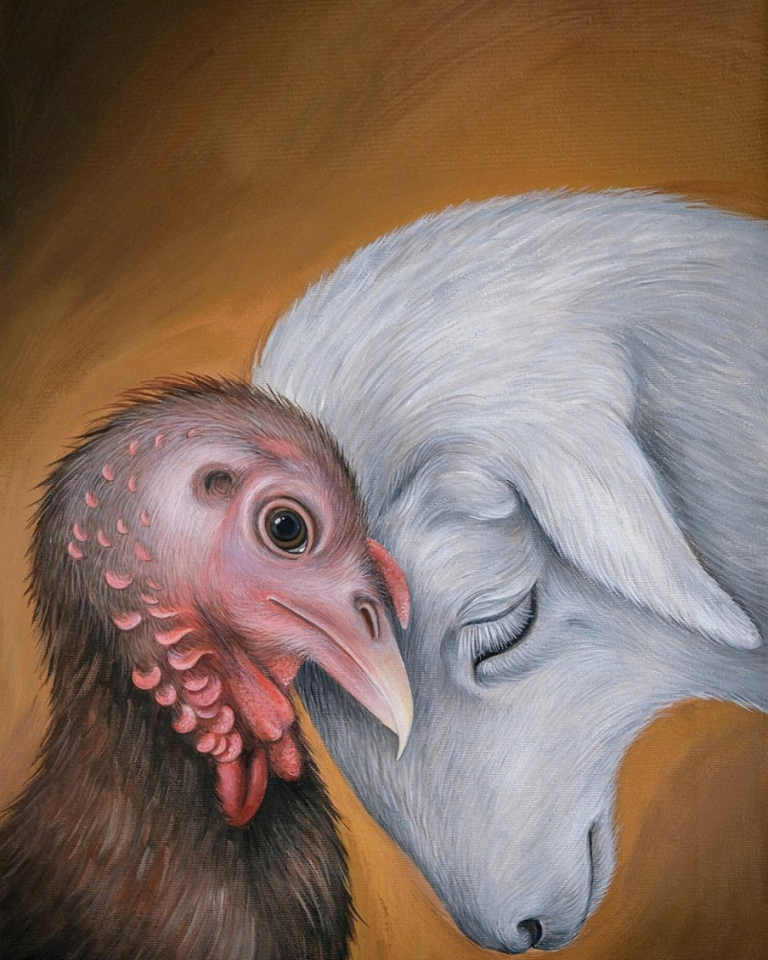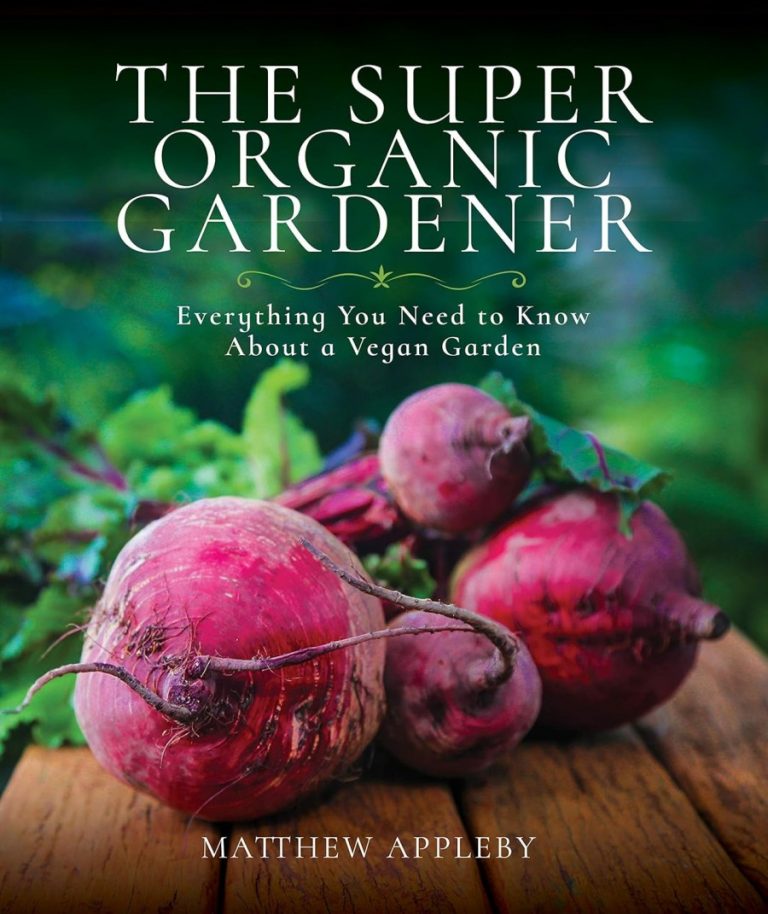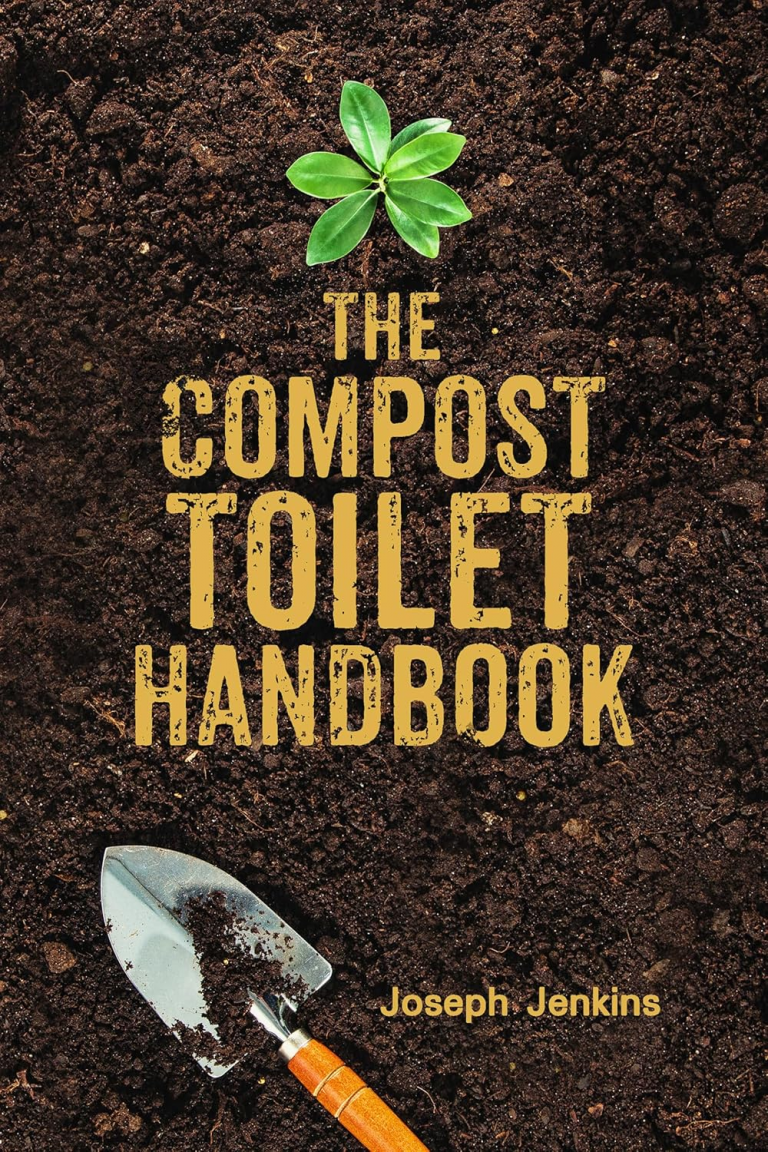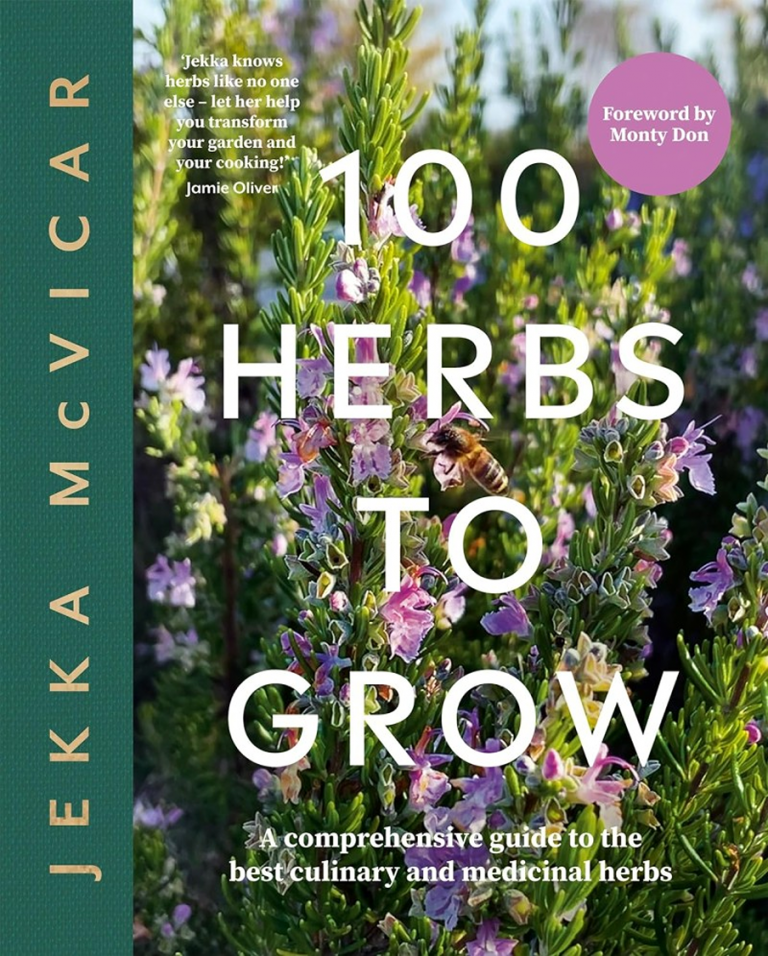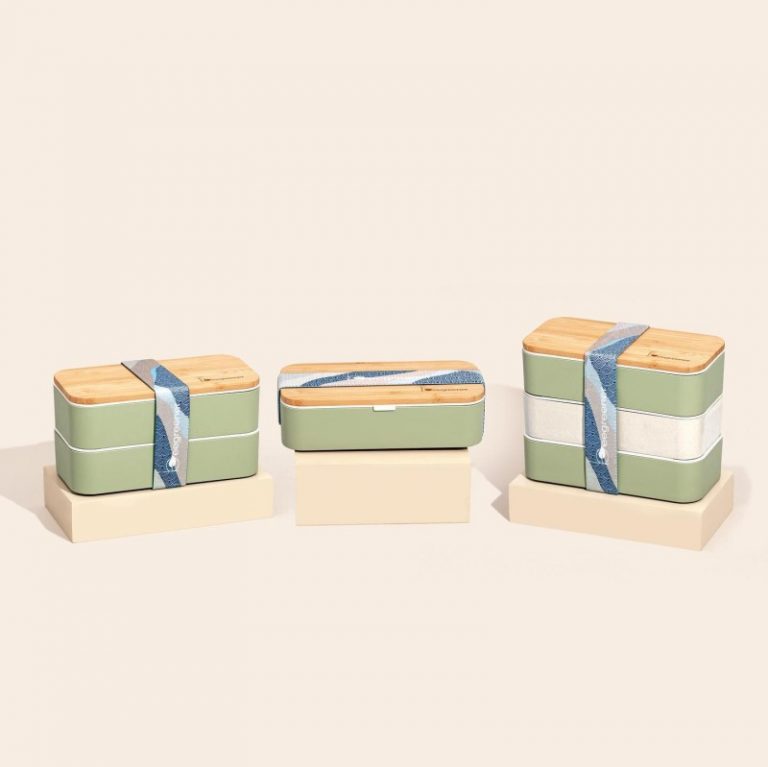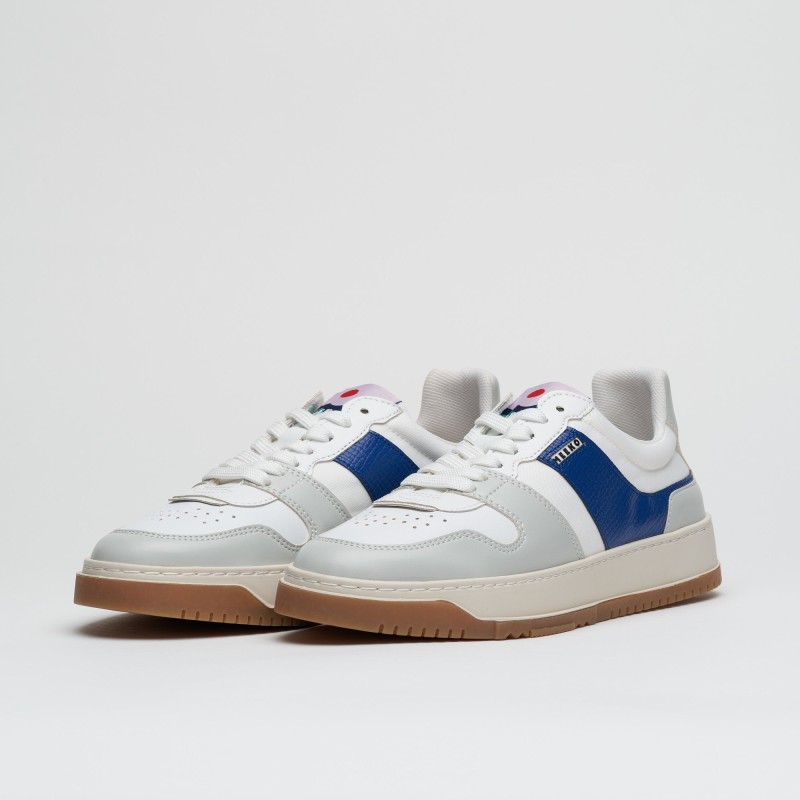
What you wear on your feet can change more than your outfit. Shoes carry you through daily life, and they can carry better values too. Vegan sustainable sneakers skip animal products and use eco-friendly materials instead, like recycled plastics, organic cotton, cork, or plant-based leathers.
These trainers are surging, as more people connect climate action with everyday habits. Shoppers want gear that looks great, lasts, and stays kind. Meeko sneakers are made with recycled ocean plastic, cork soles and vegan leather.
How Vegan Sustainable Sneakers Help
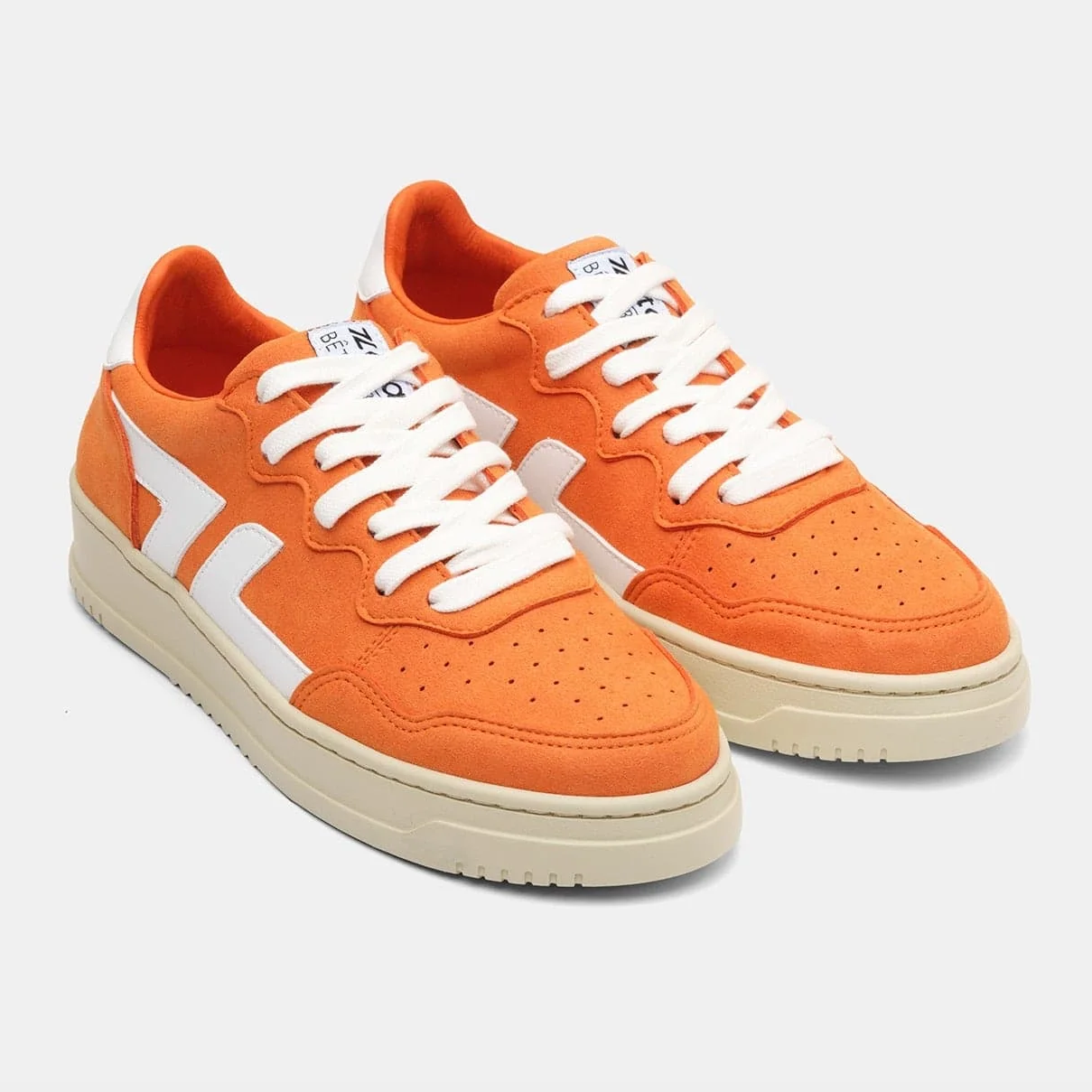
Vegan sustainable sneakers use organic cotton, cork, recycled PET from bottles, and recycled ocean plastics. Some line uppers with pineapple leaf fibre or apple skin, while midsoles use bio-based foam from sugarcane. These choices reduce pressure on forests, cuts plastic waste and livestock farming.
Water use drops too. Traditional leather needs vast amounts of water from cattle rearing to tanning. Plant-based and recycled textiles tend to use less water across the process. That means fewer drained rivers and cleaner local supplies. It also helps keep toxic run-off out of communities near factories.
Carbon savings add up. Independent analyses estimate footwear makes up around 1.4% of global greenhouse gas emissions. Leather is carbon heavy due to feed, land use, and methane from cattle. Vegan options cut this by skipping animal farming and by using lighter materials.
Biodiversity also gains. When brands avoid leather, they reduce demand for pasture that often replaces rich habitats. Less deforestation means more space for wildlife and stronger soils. Even small switches, like a cork insole, support regenerative forestry and long-term land health.
Reducing Waste and Pollution in Production
Waste is a stubborn problem in footwear. Vegan sustainable sneakers tackle it head on with upcycled materials that keep plastics and textiles out of landfill. Offcuts turn into linings, laces, and trims. Some pairs even use fishing nets recovered from the sea.
Pollution drops in factories that choose safer dyes and water-based glues. These swaps cut toxins in waste water and protect workers’ skin and lungs. More facilities adopt zero-waste policies and run on renewable energy, which shrinks both air and water pollution during production.
Supporting Ethical Supply Chains
Ethics run through the best vegan sneaker supply chains. Fair pay, safe hours, and independent audits help protect workers from exploitation. Traceable cotton and rubber, plus verified recycling streams, close loopholes and bring clarity.
Skipping the leather trade also lowers pressure on habitats tied to cattle ranching. Less demand for pasture supports long-term soil health and community land rights. The result is a supply chain that respects people, animals, and the places they live.
Promoting Animal Welfare Worldwide
Every vegan pair sends a signal. You are not funding factory farms or slaughterhouse by-products. That reduces demand for an industry linked to deforestation, water stress, and methane emissions.
There is a human side too. Shifting away from resource-heavy animal agriculture can free land and water for food crops, which supports global food security. Your purchase sits inside a bigger picture, where small choices align with better care for animals and people.
Good Brands of Vegan Sustainable Sneakers
Vegan sneakers are easy to wipe clean with a damp cloth (if laundered, use a microfibre filter). Do not machine-wash. European shoes don’t offer half-sizes, so go a size up and wear thicker socks!
Zeta (fruit leather sneakers from France)
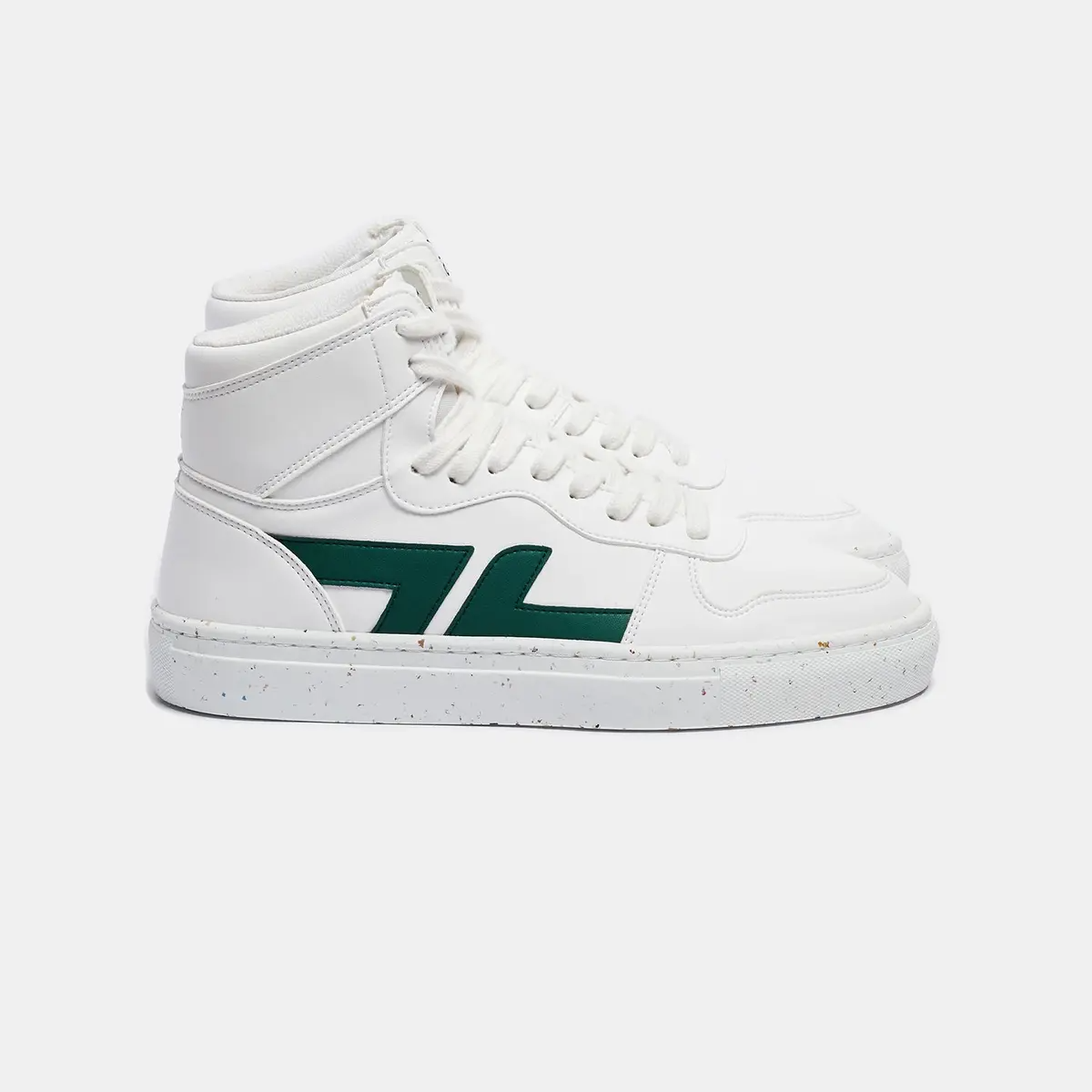
France is known for its style, and Zeta brings a fresh spin with vegan sneakers that look and feel great. Thanks to their thick insoles, these are so comfortable and good for your feet, that they are recommended by osteopaths. Fairly-made by artisans in Portugal, they are designed in Bordeaux (France).
The removable insoles are made with recycled foam, and the outsole is also partly recycled material. Sent in cardboard boxes with recycled paper flyers and recycled polyester labels.
Zeta avoids mass production. Instead, they make small batches to cut down on wasted stock and carbon output. This approach keeps things more personal. Small runs mean more care goes into each shoe.
Comfortable Unisex Hemp Sneakers (from Italy)
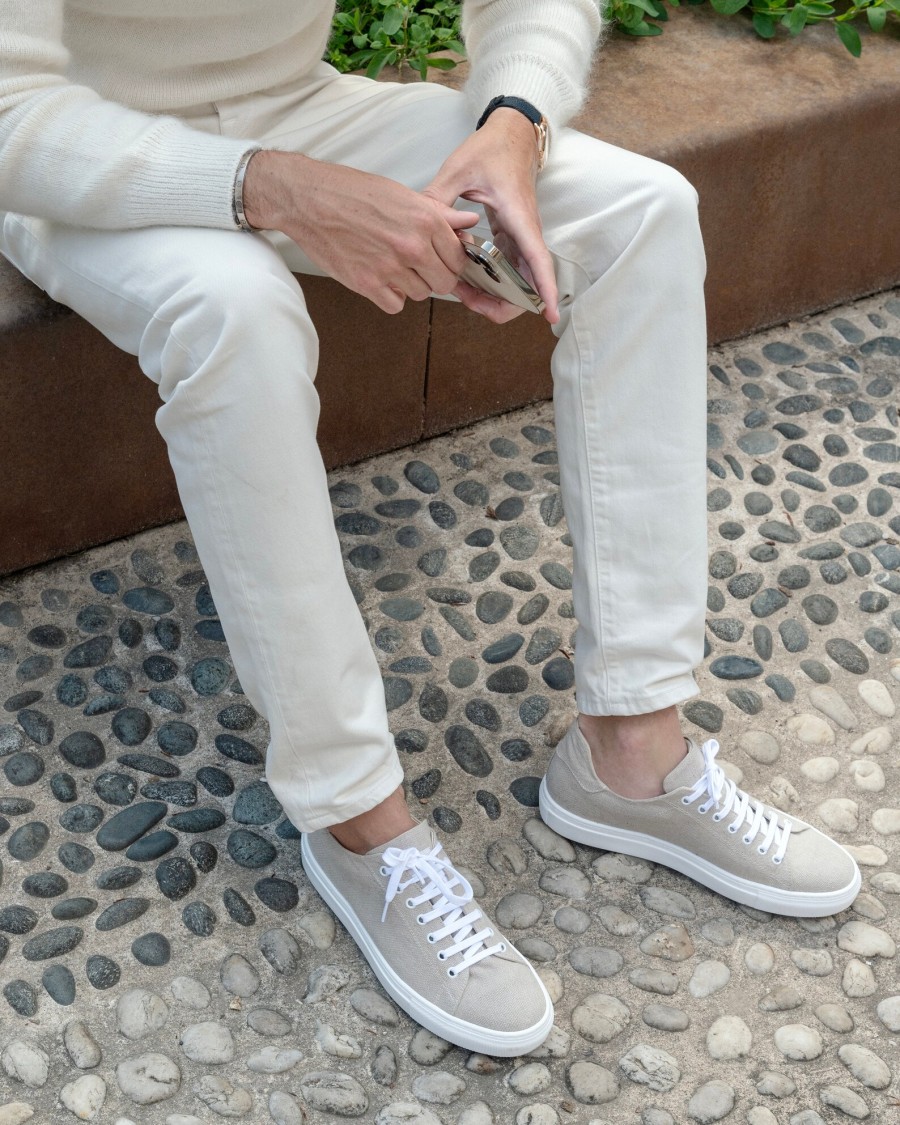
These unisex hemp sneakers are handcrafted in Italy from one of the world’s most eco-friendly crops (that naturally biodegrades, at end of life). The uppers are in beige hemp, with natural white rubber soles, and cream bamboo lining. The laces are made from organic cotton, and the sneakers are sent in recycled packaging.
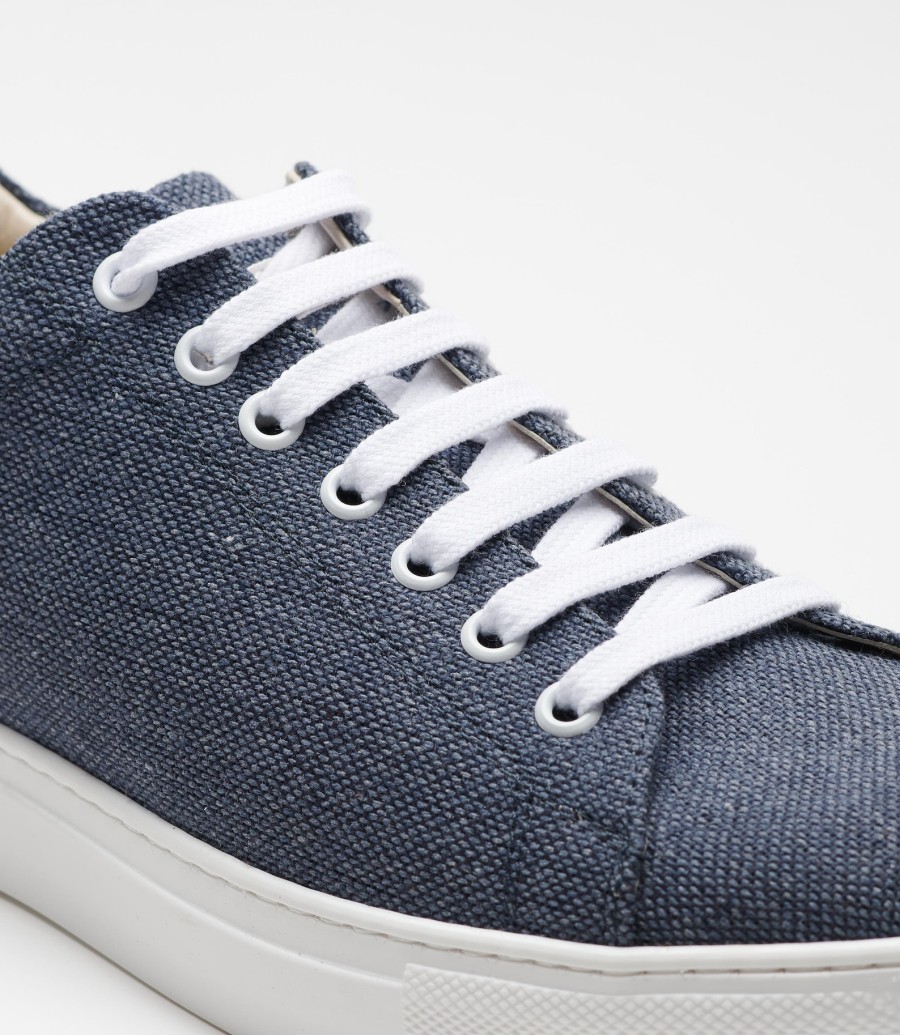
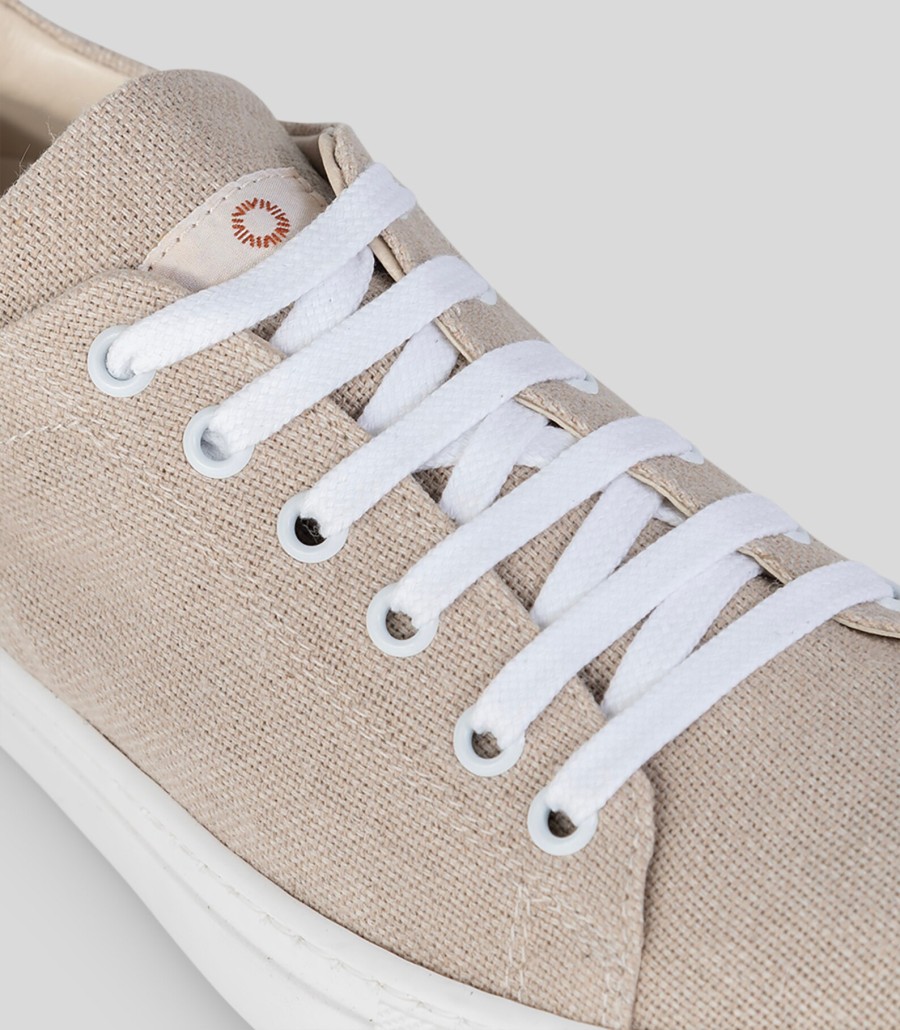
Suitable for summer and mid-season (due to the thermoregulatory of hemp). These are extremely comfortable, due to a specially adapted insole. They are made with water-based glue, then the soles are sewn to the rest of the shoe (including an assembly sole) to give structure. Choose from beige or navy.
The World’s First Waterproof Hemp Sneakers
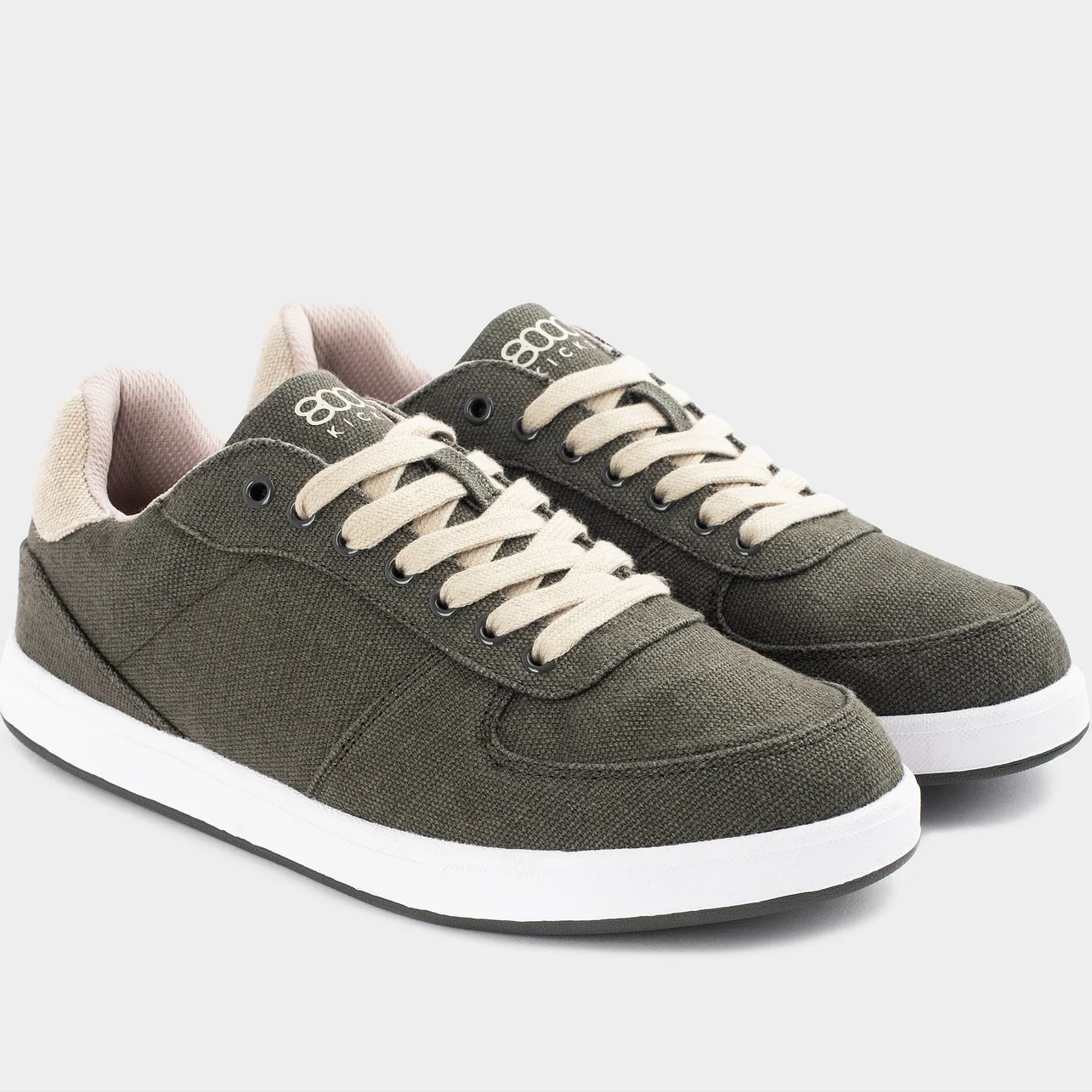
Eco-friendly footwear just got an upgrade. 8000 Kicks has created the world’s first waterproof hemp sneakers, blending nature, innovation and comfort. From the fields to your feet, these shoes stand out for their care for the planet and everyday life.
The waterproof layer keeps your feet dry in puddles and rain, but still lets them breathe. No need to worry about losing comfort while out walking dogs, or heading to work.
Hemp grows fast, uses little water and soaks up carbon from the air. It’s strong yet soft on your feet and doesn’t trap odours. The fibres hold up longer than cotton or synthetic materials, letting your shoes last through everyday wear and outdoor adventures.
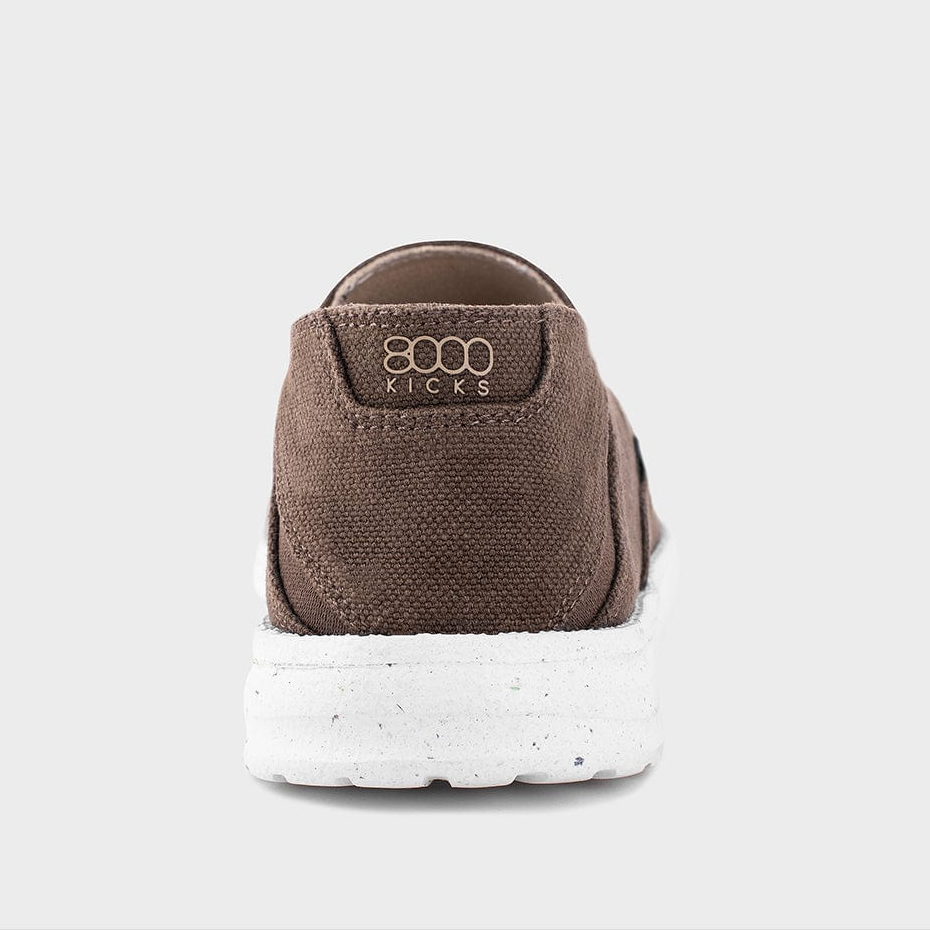
Every part, from the laces to the soles, uses plant-based or recycled materials. Even the packaging is recycled and plastic-free. Mud and dirt brush off hemp much easier than most fabrics.
Elliott Footwear: Recycled Cotton Sneakers
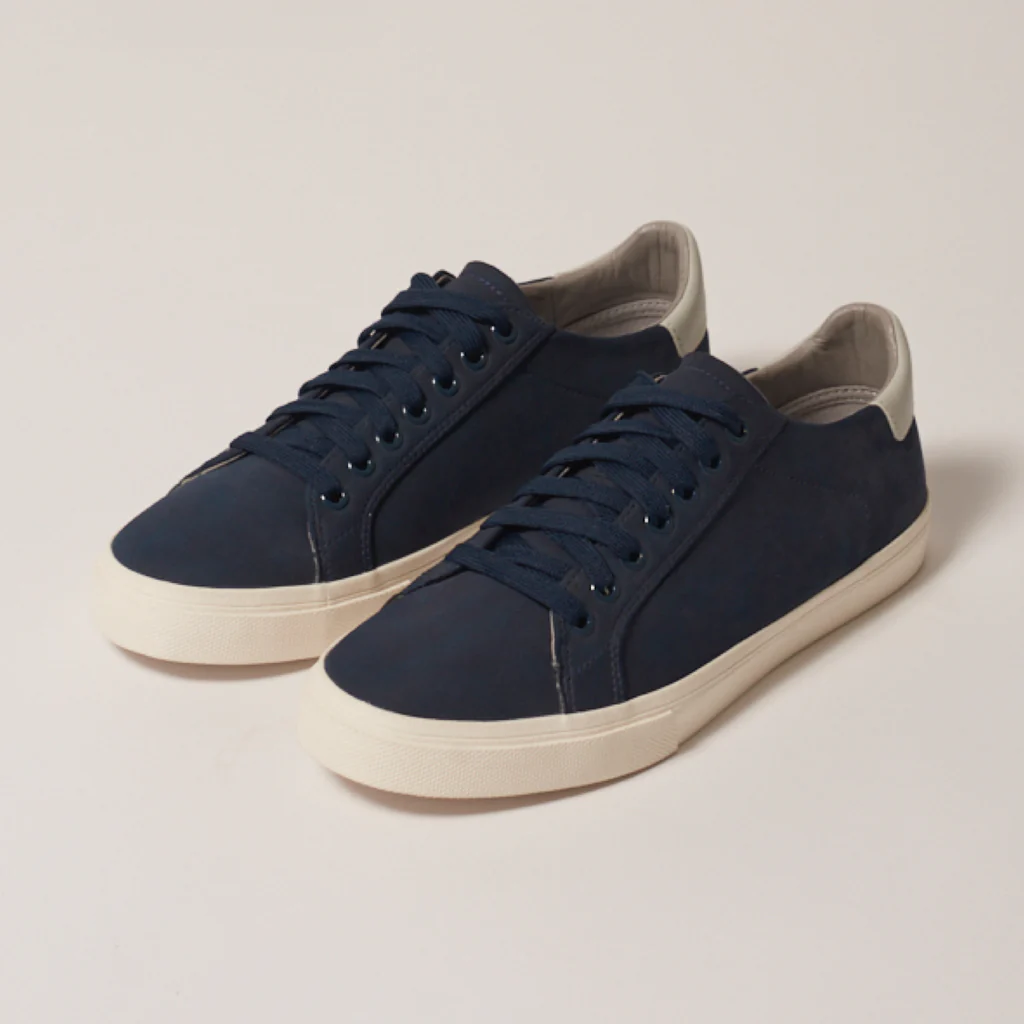
Elliott Footwear recycled cotton trainers have gained attention for more than their clean design. A one-time purchase from over the border in beautiful Denmark. These are beautifully designed, with recycled cotton canvas, anti-slip rubber soles and there are also hi-top versions (like Converse sneakers).
Easily cleaned with a little baking soda in a bowl of water, return for recycling to get 15% off your next pair. This company has full information on how to clean your Elliott’s sneakers.
Etiko: Fair-Trade Vegan Hi-Top Sneakers
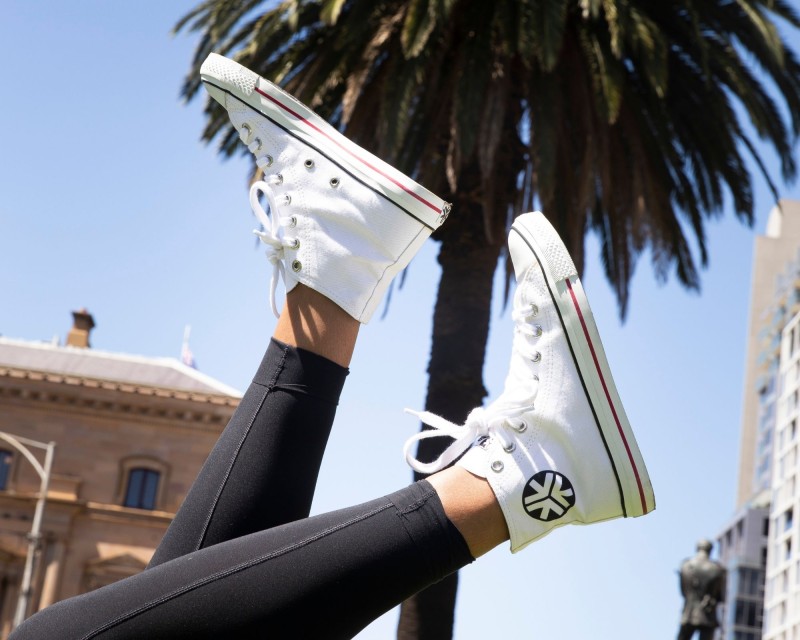
Etiko fair trade vegan sneakers are a one-time purchase from Australia. Made ethically in Pakistan and sent in cardboard packaging, the soles are natural latex rubber and soles have built-in support, with nontoxic dyes and no animal glues. This company also offers low-cut sneakers, and sneakers for children.
The soles of these sneakers are made from natural latex rubber that’s tapped (not chopped) from a tree, with certified organic and Fair trade cotton uppers and laces. The sneakers use non-toxic dyes and non-animal glues, and are sold in a shoebox made from post-consumer waste.
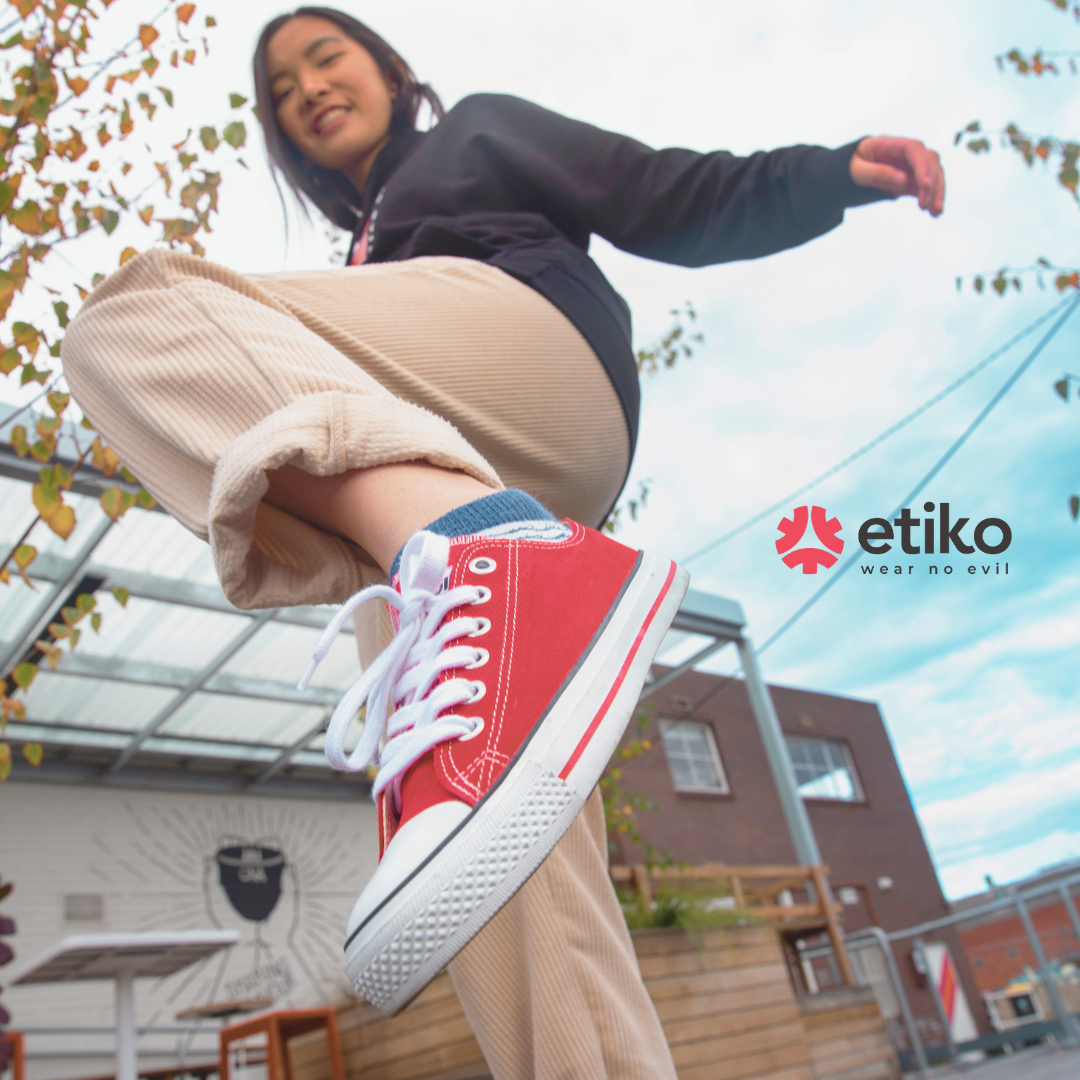
Etiko is one of Australia’s most ethical fashion brands, founded by a man in 2005, who wished to sell sneakers that did not involve child labour, underpaid workers or harming the environment or animals.
MOEa Fruit Leather Sneakers (from France)

MoEa is a French brand of vegan sneakers, which makes their shoes from fruit leathers (leftover waste from the apple, wine and pineapple industry).
The name is short for Mother Earth!
The soles are made in Spain, and then the rest of the sneakers are made ethically in Portugal. They feather recycled rubber soles, recycled bamboo lining and organic cotton laces. Sold in many styles and colours.
Saye Vegan Sneakers (Recycled Fruit Leathers)
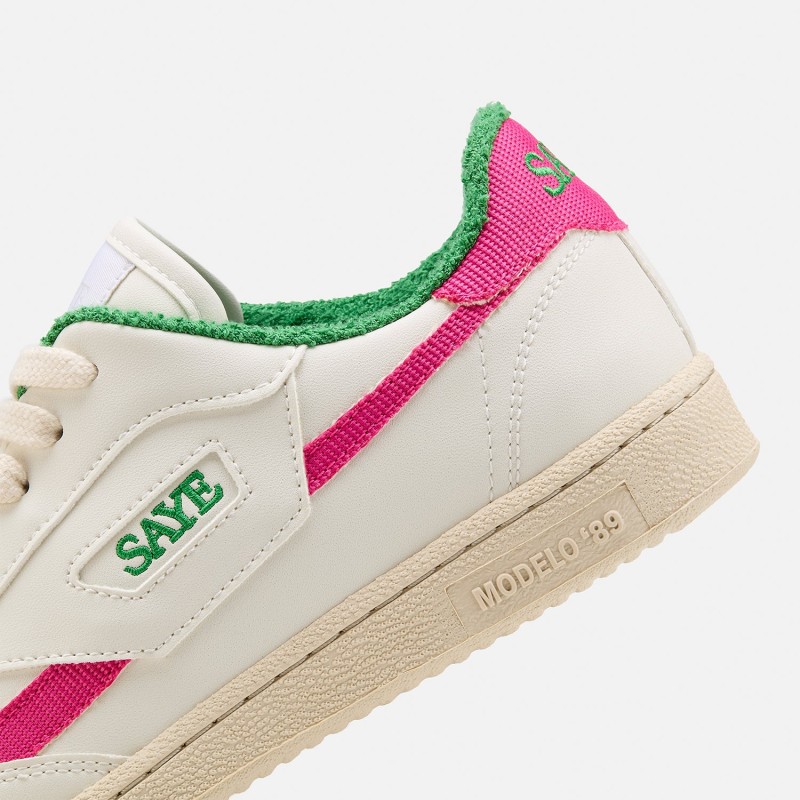
SAYE offers a Greens Capsule range of vegan sneakers made from rescued fruits and vegetables like mango (brown stripe) or apple (red stripe).
Unisex retro sneakers are made with corn napa and interiors of bamboo and recycled plastic. The insoles are made from leftover waste from a mattress factory!
Apple Vegan Leather Sneakers (from Sweden)

Humans Are Vain (Sweden) combines modern design with sustainable ‘apple leather’ and plastic waste. Made ethically in Portugal, they can be recycled at end of use.
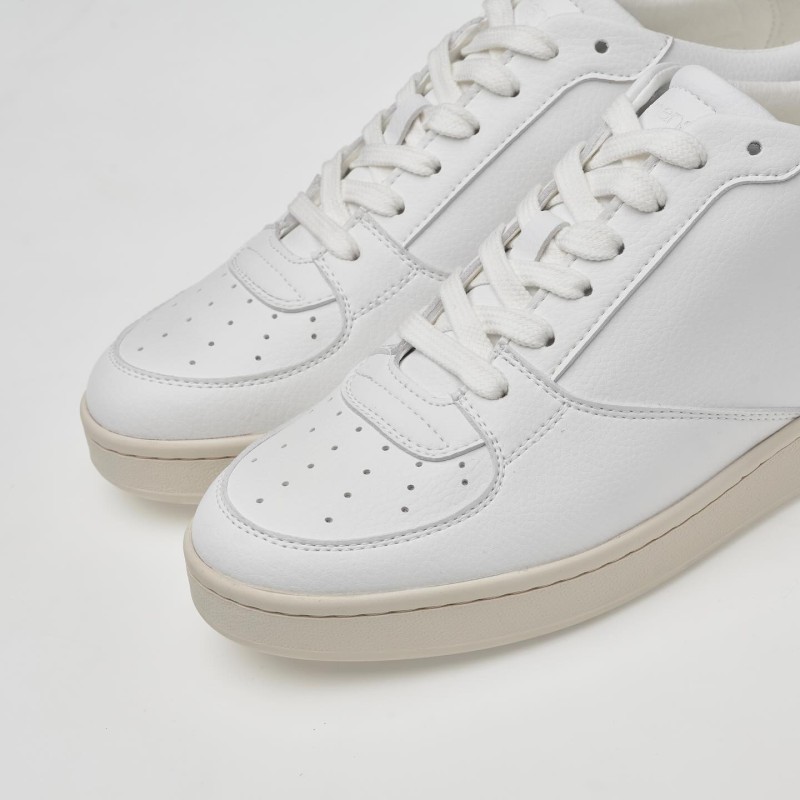
Created by the founders who saw plastic waste washing up on Bohuslän (nearly all North Sea seabirds and marine creatures ingest plastic), their Challenge V3 won The Independent’s award for ‘best vegan sneaker’.
Comfortable Vegan Suede Sneakers (from Italy)
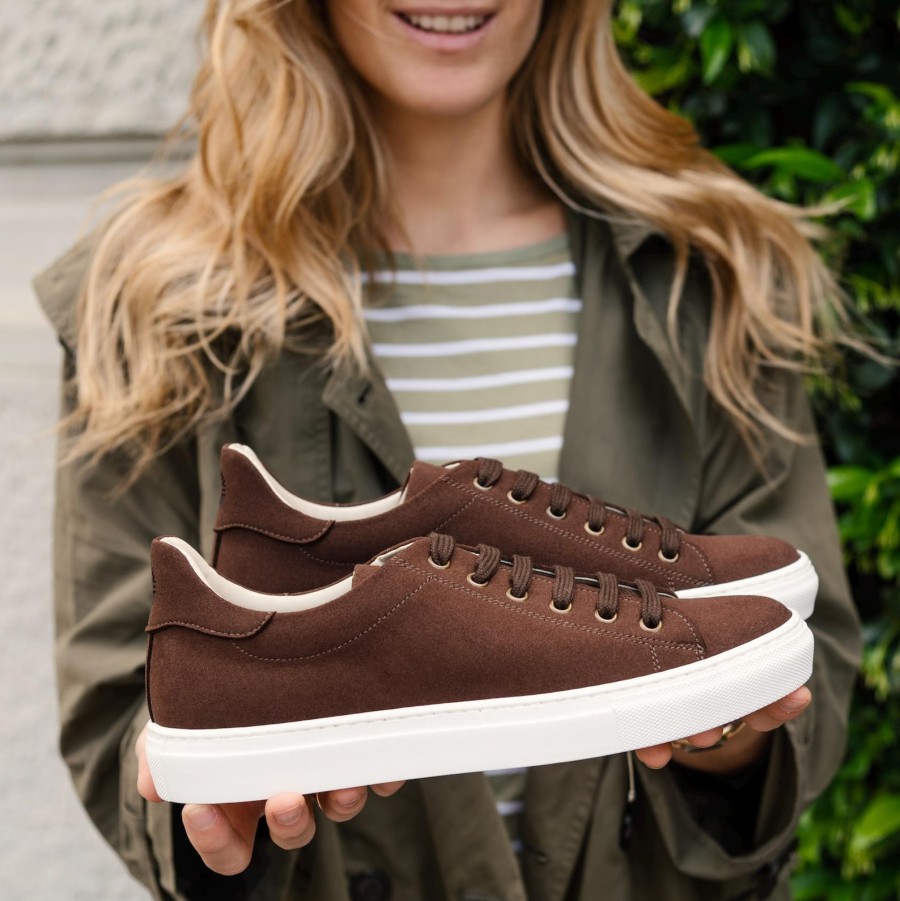
These vegan suede sneakers are super-comfortable, and handcrafted in Italy. Suitable for mid-season and winter, they feature brown microfiber uppers, and cream-coloured bamboo lining, along with white rubber soles. The laces are made from organic cotton, and the sneakers are sent in recycled packaging.
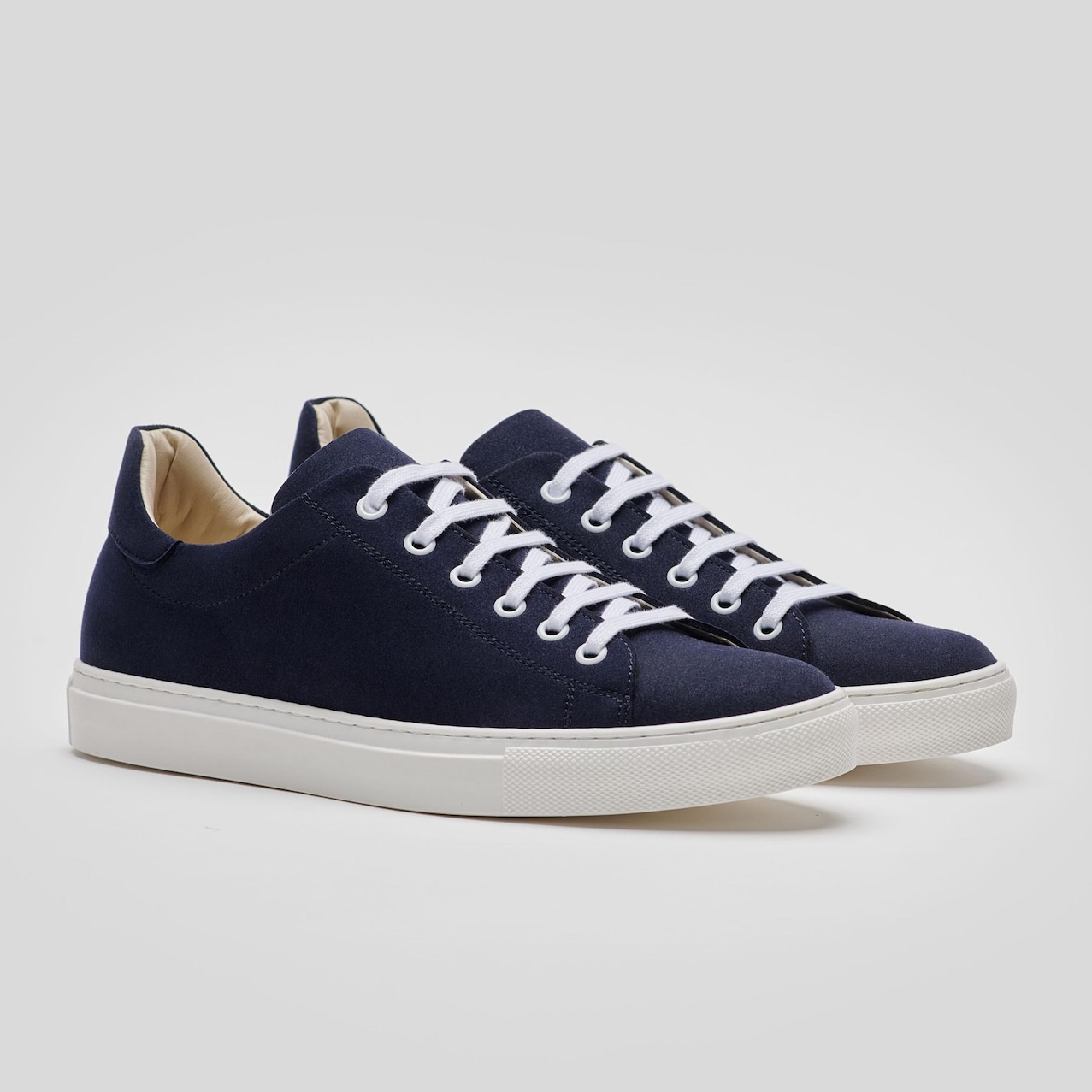
The sole is glued (water-based), then sewn to the rest of the shoe, including an assembly sole to give structure. Choose from earthy brown, or elegant navy blue.
Rationl: A Quality Brand of Eco-Vegan Trainers
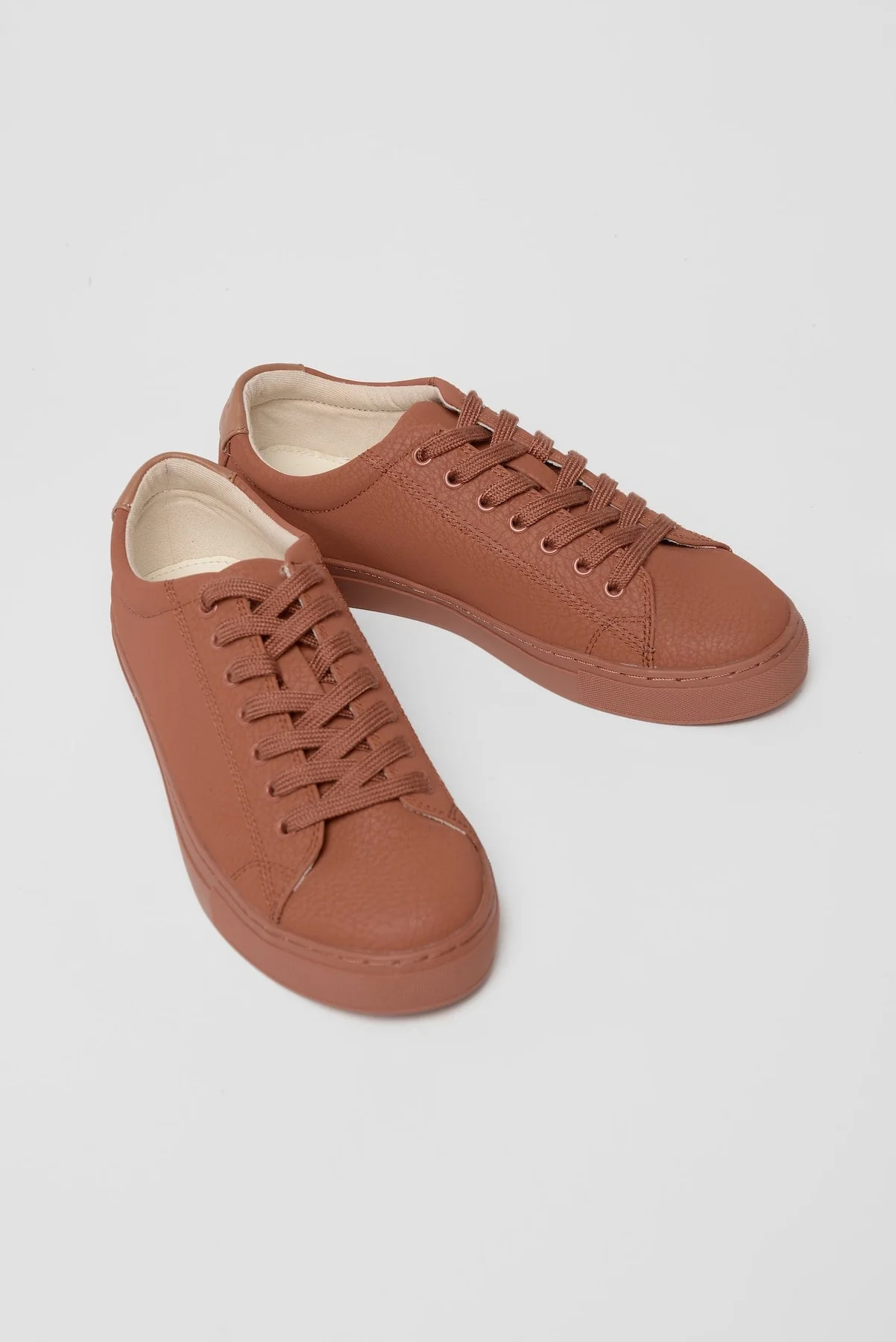
Rationl (sold online at Immaculate Vegan) is a unique brand of trainers in various colours. Made from eco-friendly vegan materials, these are ideal for men or women and feature a classic style to go with any outfit. Made with recycled materials and natural rubber soles, they are made with nontoxic vegan leather and organic cotton.
A portion of profits are given to an organisation that offers a free helpline for people suffering from brain & spinal medical conditions.
The company makes trainers from recycled polyester, plant-based uppers or organic cotton. Even the packaging avoids plastic where possible. Water-based glue and recycled laces mean less harm to the planet.
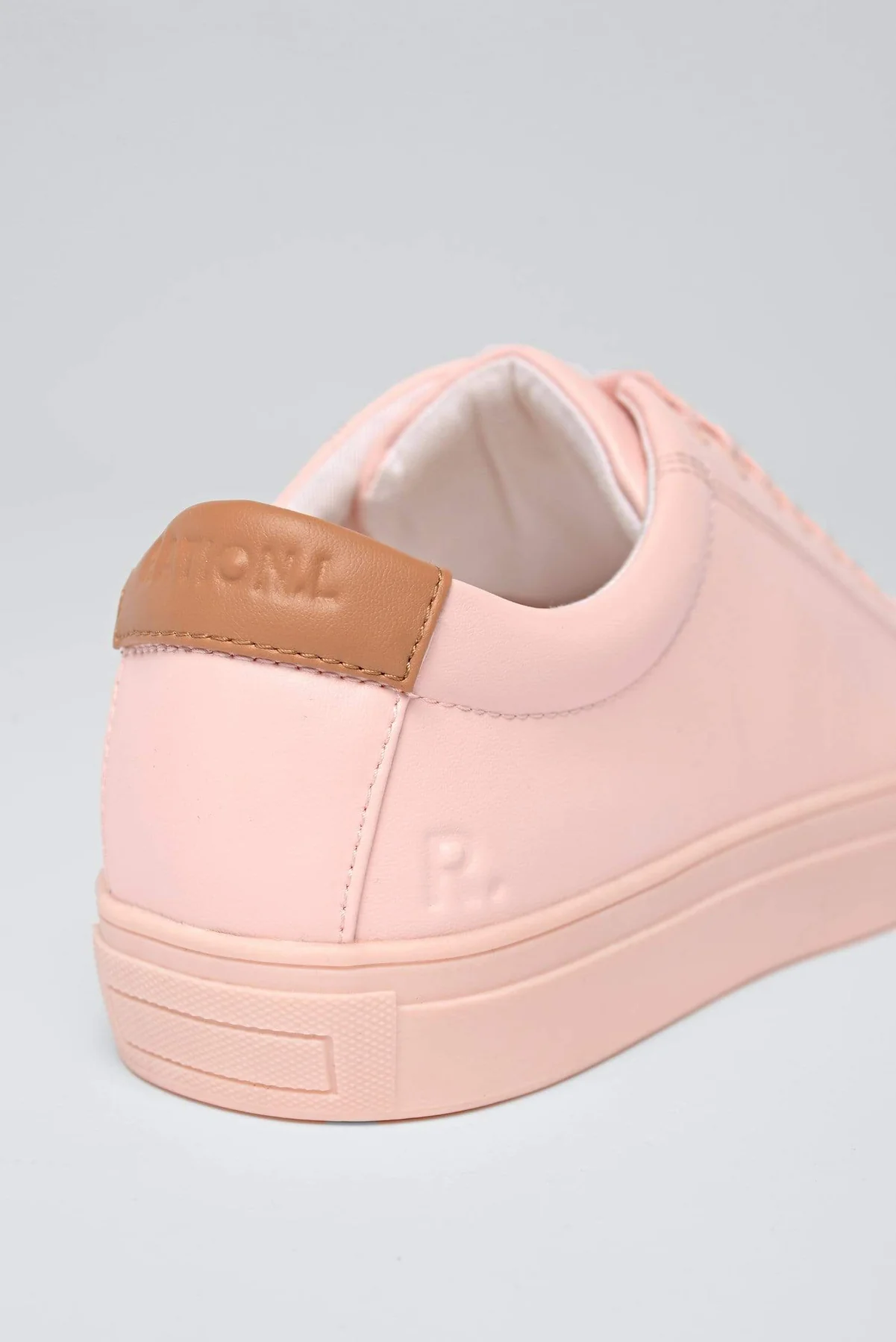
Trainers don’t need wild colours to stand out. Ration.L keeps things classic and clean. Think white, black, and natural tones with tidy stitching. Wear them with jeans, dresses, suits or shorts.
Nobody wants blisters or aching arches. Ration.L uses thick insoles and soft linings so you can wear your trainers for hours, right away. The material shapes to your feet without pinching or rubbing. This makes them great for busy days or weekends spent walking.
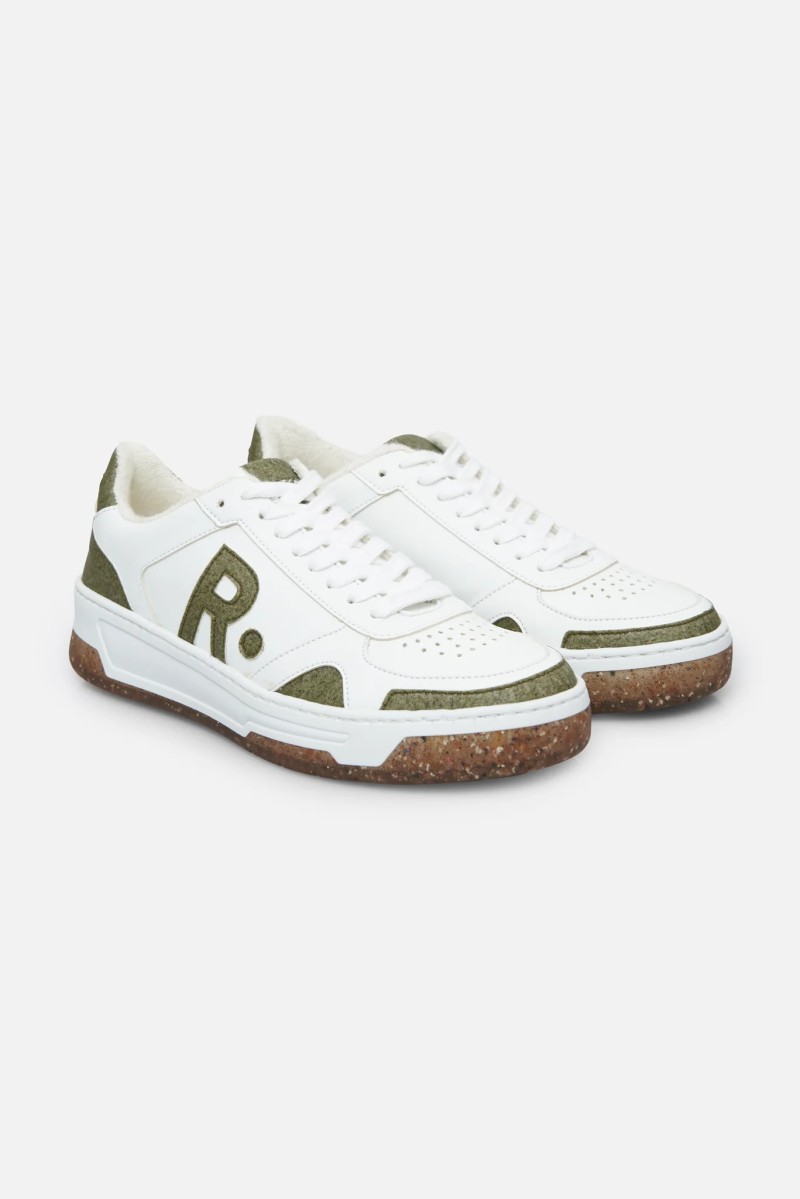
R-Thrive is the latest trainer, made with vegan apple leather (from fruit waste) and uses recycled tennis balls and corn waste.

